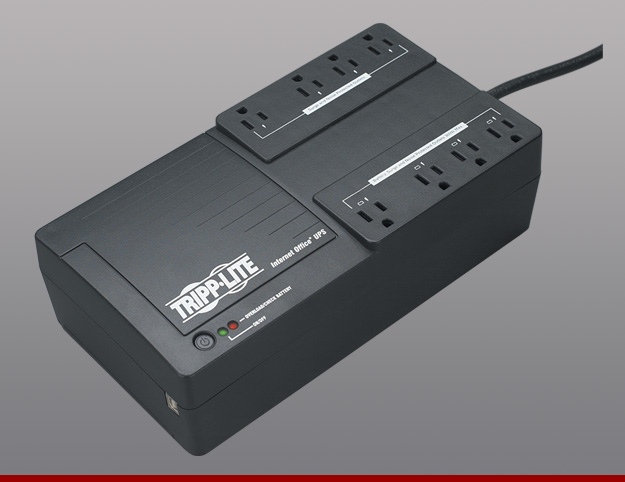
UPS – What Can a Brownout Do to You?
Electricity is the lifeblood of your computer. Just as your body reacts to the ill effects of high or low blood pressure, your PC too can exhibit signs of distress from changes in its lifeblood. Apply too little electricity, and your computer shuts down. Apply too much, and you run the risk of sizzling your circuits.
We take for granted that the power emanating from our outlets is always the same, and always within tolerance. But that is not always necessarily so. And when the power falls out of spec, your PC can be affected. Most folks plug their PC’s electrical cords into some sort of power strip, which may be little more than a glorified extension cord. Or it may be something sold as a surge protector, with some circuitry designed to stave off the bad effects of a power surge, as one might experience with a nearby lightning strike or a failed transformer sub-station. The best thing to plug into though is an uninterruptible power supply, or UPS for short.

All power going to your PC runs through a power supply built into your computer. The power supply in turn sends the right amount of power to each component and circuit board in the PC. A UPS contains a battery that sits between the power outlet in your wall and your PC’s power supply. Power passes first through the UPS, and then on to the computer. The UPS does a couple of things. First, it provides better surge protection than a cheap power strip surge protector. Second, in the event of power loss at the wall, the battery kicks in to supply power to whatever is plugged into it to prevent an unexpected shutdown. Third, in the event of changes in line voltages, as might occur in brownout conditions where the power utility company reduces voltage in times of high use, the battery will regulate the voltage to the PC to keep its power input within tolerance, helping to prevent erratic behavior.
Not all computer power supplies are created equally, so each has a difference level of tolerance for handling out-of-spec power flows. I’ve seen more than one PC have spontaneous reboot problems because of variations in power input. By adding a UPS, the computer owners were able to cure what had been very vexing and seemingly random shutdown problems. This type of phenomenon is most typically seen in older homes with questionable wiring or in multi-family dwellings.
In the factory where I work, power glitches are fairly common, so each PC has been connected to its own UPS to prevent loss of unsaved data when momentary blackouts occur. Before we added those UPS units, any power glitch would be followed by loud moans and the reminders to save your work often. Now a power drop presents little more than a passing curiosity to the folks in the office. It takes as little as 100 milliseconds without power to shut a PC down. Most line interactive UPS units quote a cutover time from wall power to battery power between 2 and 4 ms, so your PC never knows what happened. Depending on the size of the battery in the UPS, you may have between five and fifteen minutes of run time, surely enough to save your data and perform an orderly shutdown.
Decent UPS units for home use will vary in price, with acceptable units starting between $40 and $75. The amount of power the UPS can supply, and for how long, is the key determinant of price. The specifications to look for are volt-amp (VA) ratings and wattage ratings. The VA number will determine how many components your UPS will support, and the wattage will give an indication of how long you can run without external power before the battery dies. Most home users will get by with a VA rating of between 350 and 550. A 350VA model will likely provide between 180 and 200 watts of power, while a 500 VA model will provide around 300 watts. As with most things, you’ll want to buy the most VA and wattage you can afford.
I have all my PCs connected to UPS units, and would not dream of running anything critical, including system backups, without the security the UPS provides. If you want to look further into UPS units, here are links to two of the more well-known brands, APC and TrippLite:
Both sites provide configurators which will help you choose the model that is right for your application. You can buy them wherever computers or computer components are sold.